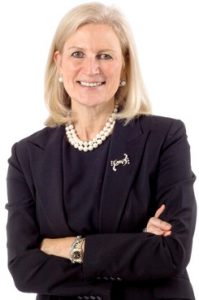Want to Work at This Firm? First Take This Psychological Assessment
Thompson Hine is taking a cue from the Fortune 500 and Big Four by incorporating behavioral science and psychological assessments in its interview process.
December 18, 2019 at 06:00 PM
9 minute read
 Credit: Shutterstock.com
Credit: Shutterstock.com
Thompson Hine managing partner Deborah Read knew she was taking a risk when her firm began asking applicants to submit to a psychological assessment.
While the corporate world has long spent money on social scientists and consultants who incorporate behavioral science into hiring practices, Read hadn't heard of any law firm employing psychological testing. Like diversity programming and other management techniques common in the corporate world, this was yet another management tool that the legal world had been slow to embrace.
But four years ago, Read felt that changes in the legal industry necessitated a hiring overhaul. No longer would clients foot the bill for a summer associate, or even a first-year associate. Increasingly cost-conscious, clients have begun to resent the on-the-job training that has come at a cost to their bottom line.
 Deborah Read.
Deborah Read.Read was convinced that the days were gone when a firm could hire dozens of associates knowing that the best would eventually emerge as future partners. The firm needed a better way to pluck out good talent—a method that didn't hinge exclusively on law school credentials or an up-and-out culture.
"We don't have that luxury anymore and our margins for error are much slimmer than they used to be," she said.
A significant body of academic work has shown that personality tests are a reliable measure of future job success, and psychological testing has long been a mainstay in corporate hiring at companies ranging from Harley-Davidson to McKinsey & Company. The Myers-Briggs psychological test is used by 88 companies in the Fortune 100.
But at law firms, hiring remains a mostly informal and subjective process where candidates go through freewheeling and unstructured one-on-one interviews.
Eric Sydell, an industrial psychologist who works at hiring consultancy Modern Hire, likens the traditional process to dating.
"You go across the table from the person and you chit chat and if you like them you keep going," Sydell said. "But who knows where this chemistry comes from?"
In an interview, he said, chemistry often reflects the similarities between the interviewee and interviewer, not the competence of the candidate. Read agrees, remembering a time when she left an interview feeling great about a candidate, only to realize later that much of her positive feeling was not due to his competence in law, but to the fact that the two shared a mutual passion for art.
"I didn't feel positive because I knew he would be a great lawyer," she said. "It was because he related to me on something that I like."
This informal process no longer seems to be working for Big Law: For every 25 new associates hired each year, 17 will leave their firm, according to 2017 statistics from the National Association of Law Placement (NALP). Lateral hiring is just as risky. Twenty-four percent of lateral partners leave the firm that hired them within three years. And nearly half leave within five years. Two-thirds of lateral hires won't produce 75% of their expected book of business.
Read and Thompson Hine felt there was a better, more efficient way to hire talent. So the Cleveland-based firm overhauled its entire hiring process.
Sort, Not Sift
Associates applying to Thompson Hine—both lateral hires and those coming straight out of law school—are asked to take the 16 Personality Factor test. Developed by psychologist Raymond Cattell in the mid-20th century, the test's questions seek to align the test taker's behavior with 16 different personality measurements, which include self-reliance, openness to change and emotional stability.
Test takers who score high on the self-reliance scale, for example, are described as solitary and individualistic, while those who score low on the scale are considered group-oriented.
The results of the tests are then overlaid on a "success index" composed of traits prevalent in the firm's most successful partners—who were also given the test. The goal is to see how a candidate's behaviors align with empirically proven successful traits unique to the firm.
Thompson Hine partners, for example, tend to be even-keeled, a trait that wouldn't necessarily define all Big Law partnerships. The test, in the end, isn't meant to be a sifting tool, but a guide for the one-on-one interviews that follow. A candidate who is determined to be even-keeled is asked questions meant to draw out past instances of the potential hire keeping their cool in a high-pressure situation.
Sydell said that relying on psychological assessments as an outline, not a screening process, is the key to crafting a successful hiring scheme. He uses salespeople as an example. Managers looking to hire a sales employee often prefer extroverted candidates, he said, which is a mistake.
"What makes somebody successful is not just one personality score, but the combination of all of these traits," Sydell said. "If somebody scores low on extroversion, then in an interview you ask them what their strategy is, and you may find that they're just as effective as an extroverted candidate."
After taking the psychological test and going through a one-on-one interview, candidates are brought in for a paneled interview where three Thompson Hine employees—two attorneys and one talent management profession—ask each candidate the same set of questions. The goal is to further remove subjective attitudes and implicit bias in interviewing.
The system takes roughly half a day, about the same time as the firm's previous hiring process. And the new system not only helps the firm make better hiring decisions, but it also removes much of the implicit bias common in the hiring process and has led to a more diverse workforce, said Thompson Hine's chief talent officer Andy Colón.
The first summer associate class that went through the new interview process, in 2017, was the most diverse the firm has ever had, Colón says. Around 70% of the 2L class was racially diverse. The numbers stayed strong, with 60% of the following year's class being racially diverse.
"Assuming that summer associates are offered a position, we'll have a wonderful pipeline in the coming years," he said. "It has worked so well that we extended it to all non-partner hires, including laterals."
Thompson Hine started using the process for lateral hiring firmwide in January 2019.
The benefits aside, judging candidates based on the traits valued in the firm's partnership may present some problems, said Randall Kiser, principal analyst at legal consultancy DecisionSet. For one, the traits that are important to the practice of law now will almost surely differ from those required in the future. For example, when these associates make partner, technology advances will likely require that lawyers increasingly work in interdisciplinary teams, he said.
Additionally, Kiser's research has shown that the skills and habits important to law firms aren't always the behaviors preferred by clients. Lawyers tend to emphasize technical skills and expertise, while clients focus on soft-skills such as responsiveness and judgment.
"Attorneys tend to show how smart they are, and clients want to know about what type of people they are," Kiser said.
Will Other Firms Follow Suit?
There are a few examples of firms implementing personality assessments: Omaha-based firm Koley Jessen uses online psychological assessments to place associates in its 70-attorney firm. Baltimore-based Miles & Stockbridge had its partners take the DiSC personality test.
But only about 3% to 5% of law firms use personality assessments, according to Kiser. And the majority of the firms that do test use them for partner laterals, not entry-level associate positions like Thompson Hine.
At the annual NALP conference in San Diego in April, Colón spoke on a panel attended by more than 200 law firm leaders about the new process. When the assembled lawyers were asked if their own firms employ a similar system, no one raised a hand. But, through meetings and conversations with other chief talent officers since then, Colón has gotten the impression that more firms will adopt the process in the coming year.
"I have no doubt that more will adopt it," he said. "You'll hear more about this."
Meanwhile, Kiser said Thompson Hine's status as a first-mover will, in time, give the firm a competitive edge, especially in times of recession, when firms will be unable to attract talent by simply paying more.
"When we enter another period of economic recession, there will be a more substantial need to refine hiring processes," he said. "Law firms that do it now will have a significant advantage."
Read certainly hopes that is the case. In an industry that is often resistant to change, she acknowledges that her firm has taken a risk. And she will only know for sure that the risk paid off a decade from now, when the associates hired with the help of psychological testing are up for partner.
"I personally had to take some personal risk, and we put a lot of money in this program," she said. "Our profession generally is risk-averse, but that can be a trap that's very costly for an industry. Everybody is innovating nowadays and I just can't see how you can afford not to."
Read More:
It's Time to Overhaul the Lateral Hiring Process
Exit Strategies: Aging Partners Are Forcing Firms to Reconsider Retirement
This content has been archived. It is available through our partners, LexisNexis® and Bloomberg Law.
To view this content, please continue to their sites.
Not a Lexis Subscriber?
Subscribe Now
Not a Bloomberg Law Subscriber?
Subscribe Now
NOT FOR REPRINT
© 2025 ALM Global, LLC, All Rights Reserved. Request academic re-use from www.copyright.com. All other uses, submit a request to [email protected]. For more information visit Asset & Logo Licensing.
You Might Like
View All
'None of Us Like It': How Expedited Summer Associate Recruiting Affects Law Students and the Firms Hiring Them

Latham's Lateral Hiring Picks Up Steam, With Firm Adding Simpson Practice Head, Private Equity GC
3 minute read

Leaning Into ‘Core’ Strengths, Jenner’s Revenue Climbs 17%, Profits Soar 23%
4 minute readLaw Firms Mentioned
Trending Stories
- 1Rejuvenation of a Sharp Employer Non-Compete Tool: Delaware Supreme Court Reinvigorates the Employee Choice Doctrine
- 2Mastering Litigation in New York’s Commercial Division Part V, Leave It to the Experts: Expert Discovery in the New York Commercial Division
- 3GOP-Led SEC Tightens Control Over Enforcement Investigations, Lawyers Say
- 4Transgender Care Fight Targets More Adults as Georgia, Other States Weigh Laws
- 5Roundup Special Master's Report Recommends Lead Counsel Get $0 in Common Benefit Fees
Who Got The Work
J. Brugh Lower of Gibbons has entered an appearance for industrial equipment supplier Devco Corporation in a pending trademark infringement lawsuit. The suit, accusing the defendant of selling knock-off Graco products, was filed Dec. 18 in New Jersey District Court by Rivkin Radler on behalf of Graco Inc. and Graco Minnesota. The case, assigned to U.S. District Judge Zahid N. Quraishi, is 3:24-cv-11294, Graco Inc. et al v. Devco Corporation.
Who Got The Work
Rebecca Maller-Stein and Kent A. Yalowitz of Arnold & Porter Kaye Scholer have entered their appearances for Hanaco Venture Capital and its executives, Lior Prosor and David Frankel, in a pending securities lawsuit. The action, filed on Dec. 24 in New York Southern District Court by Zell, Aron & Co. on behalf of Goldeneye Advisors, accuses the defendants of negligently and fraudulently managing the plaintiff's $1 million investment. The case, assigned to U.S. District Judge Vernon S. Broderick, is 1:24-cv-09918, Goldeneye Advisors, LLC v. Hanaco Venture Capital, Ltd. et al.
Who Got The Work
Attorneys from A&O Shearman has stepped in as defense counsel for Toronto-Dominion Bank and other defendants in a pending securities class action. The suit, filed Dec. 11 in New York Southern District Court by Bleichmar Fonti & Auld, accuses the defendants of concealing the bank's 'pervasive' deficiencies in regards to its compliance with the Bank Secrecy Act and the quality of its anti-money laundering controls. The case, assigned to U.S. District Judge Arun Subramanian, is 1:24-cv-09445, Gonzalez v. The Toronto-Dominion Bank et al.
Who Got The Work
Crown Castle International, a Pennsylvania company providing shared communications infrastructure, has turned to Luke D. Wolf of Gordon Rees Scully Mansukhani to fend off a pending breach-of-contract lawsuit. The court action, filed Nov. 25 in Michigan Eastern District Court by Hooper Hathaway PC on behalf of The Town Residences LLC, accuses Crown Castle of failing to transfer approximately $30,000 in utility payments from T-Mobile in breach of a roof-top lease and assignment agreement. The case, assigned to U.S. District Judge Susan K. Declercq, is 2:24-cv-13131, The Town Residences LLC v. T-Mobile US, Inc. et al.
Who Got The Work
Wilfred P. Coronato and Daniel M. Schwartz of McCarter & English have stepped in as defense counsel to Electrolux Home Products Inc. in a pending product liability lawsuit. The court action, filed Nov. 26 in New York Eastern District Court by Poulos Lopiccolo PC and Nagel Rice LLP on behalf of David Stern, alleges that the defendant's refrigerators’ drawers and shelving repeatedly break and fall apart within months after purchase. The case, assigned to U.S. District Judge Joan M. Azrack, is 2:24-cv-08204, Stern v. Electrolux Home Products, Inc.
Featured Firms
Law Offices of Gary Martin Hays & Associates, P.C.
(470) 294-1674
Law Offices of Mark E. Salomone
(857) 444-6468
Smith & Hassler
(713) 739-1250










